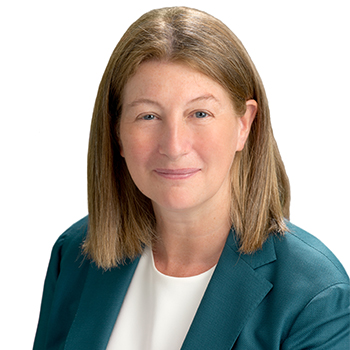Osgoode Hall Law School at York University is expanding its range of law and technology courses in its Juris Doctor (JD) curriculum to ensure Osgoode graduates will excel amid the technological changes revolutionizing legal practice today and well into the future.

“Succeeding as a lawyer in the 21st century requires an ability to be aware of, and to reflect on, the multi-faceted ways that technology is impacting the nature of legal practice, the expectations and needs of clients, and broader societal changes,” said Osgoode Hall Law School Dean Mary Condon. “As a Canadian leader in experiential and innovative legal education, our goal has always been to equip our students with everything they need to excel in their future careers from day one.”
Associate Dean (Academic) Craig Scott said that 16 courses will be taught in the law and technology area during the 2022-23 academic year. Of those, six are being offered for the first time: Engineering the Law: Technology and Innovation in Legal Service Delivery; Disability, Technology and Law; Derivatives Law and Crypto-Contracts; Documentary Film as/and Visual Legal Advocacy; Cybercrime; and Current Issues in Law and Technology.

Scott said the offerings fall into two categories: “law on tech” and “tech in law.”
“Law on tech relates to the many substantive new issues that law now has to conceptualize, regulate and adjust itself to,” he explained, “while tech in law courses concern technology’s impact on how law is practiced, how legal services are delivered, how legal documents or instruments are drafted and so on.”
One of two pillar courses, titled Emerging Technologies: Law, Policy and Governance, will be taught by Associate Professor Jonathon Penney, who also serves as a research affiliate at Harvard University’s Berkman Klein Center for Internet & Society and a longtime research fellow with the Citizen Lab based at the University of Toronto’s Munk School of Global Affairs and Public Policy.

“Established technologies like the internet and social media and emerging ones like artificial intelligence, machine learning and robotics are transforming how we live, work and interact,” says the course description.
“These changes raise a host of complex law, policy, ethical and governance challenges in a range of domestic and global contexts, including internet censorship, the role and regulation of social media platforms, disinformation and online abuse, legal automation, algorithmic discrimination, privacy, surveillance, fintech and cyber-warfare,” adds the description.
The course aims to introduce and provide a foundation in law and technology issues in order to help students identify them, understand and think critically about them, and manage them in practice.
“While the course was offered last year for the first time, COVID restrictions and remote delivery imposed limits,” said Penny. “There will be a new focus and approach this coming year, as we will be meeting in person, including more group work but also a greater emphasis on concrete law relating to emerging tech.”
The second pillar course, Engineering the Law: Technology and Innovation in Legal Service Delivery (currently listed as Computers, Information and the Law, with a formal change of title to come), will be taught by Adjunct Professor Al Hounsell, who serves as the Toronto-based senior innovation lawyer with the multi-national law firm Norton Rose Fulbright LLP.

The course will introduce students to how client needs have pushed the boundaries of legal service delivery to include elements of data, computer technology and artificial intelligence, according to the course description.
It will also give students the practical skills to break down contracts and legislation into decision trees, to develop markups and workflows for contract development and negotiations, to attain basic experience with common legal technology applications, and to apply design thinking methodology to legal problems. Finally, the course will give students an opportunity for reflection on the theoretical and practical implications of these changes to the practice of law.
Students will benefit from some “amazing” guest speakers, said Hounsell, and will come away better equipped to capitalize on the tectonic technological shift now transforming the legal industry.
“The legal industry has not been traditionally well known for innovation and creativity,” he said in an email. “This story is slowly changing. As such, there is a massive opportunity now for new lawyers to reshape the industry by thinking outside the box, using creative design methods and building innovative tools that disrupt current models and delight clients. That’s what this course is about.”
Along with being a licensed lawyer, Hounsell is an entrepreneur and seasoned coder with an extensive background in full-stack software development, having built innovative technologies for a number of tech startups prior to and during his studies at Osgoode Hall Law School and the Schulich School of Business. In 2019 and 2020, he was the recipient of the Chicago-based International Legal Technology Association’s Distinguished Peer Award for Young Professionals to Watch.
The theme of law and technology has long been central to Osgoode’s multiple offerings in the area of intellectual property law, said Scott, including the technology-heavy patents course and the Intellectual Property and Technology Intensive Program, taught by Professors Ikechi Mgbeoji and Pina D’Agostino, respectively. Instructors in many “standard law” courses are increasingly integrating legal issues raised by new technologies or even re-orienting courses around such issues, he added.
One example for 2022-23 is the Labour and Employment Law Colloquium, which will be taught by Professor Valerio De Stefano. The colloquium’s course description states that “artificial intelligence and management-by-algorithms are reshaping the modern world of work in industrialized and developing countries.” The seminar promises to examine these challenges through an international and Canadian legal lens.
De Stefano, the co-author of the recent book Your Boss is an Algorithm (Hart Publishing, 2022), holds the inaugural Canada Research Chair in Innovation, Law and Society. He previously served as BOF-ZAP Research Professor of Labour Law at the Institute for Labour Law and the Faculty of Law at KU Leuven University in Belgium.


